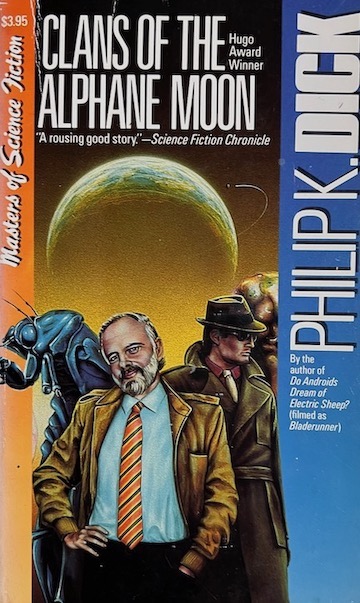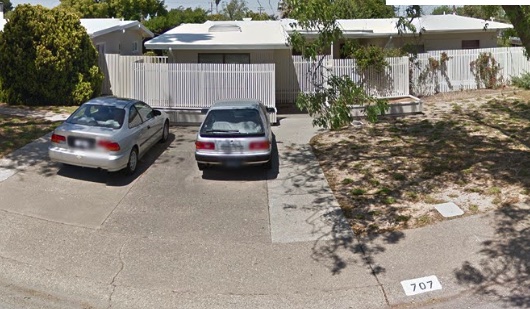Part 1 Philip K Dick 1971 Interview

The following is a transcription of an interview
with Philip K. Dick
Made on December 23, 1971
at his home in Santa Venetia, California
The interview is about 2 and ½ hours long.
The transcript has been divided into 18 parts.
James Holmes is the interviewer
At the date of this interview Philip K. Dick was 43 years old. He had only a little more than ten years to live. He would die on March 2, 1982 at the age of 53.
Though he had a substantial body of work he was not well known or appreciated by the general public in the US.
Philip K. Dick had no idea he would become a cult superstar.
To appreciate Philip K Dick is to appreciate how prolific he was. From 1952 when he was 23 to his death in 1982 when he was 53 he published 47 novels, 117 short stories and 14 short story collections. That’s in just 30 years. In 1953 he published 31 short stories and 3 novels. In 1954, at the age of 24, he published 28 short stories and 3 more novels. Then he shifted from primarily writing short stories to writing novels. In 1963 at the age of 34 he published 5 novels and 4 short stories. The following year 1964 when he was 35 he published 6 novels and 11 short stories. That’s eleven novels in two years. The following is a list of his novels and the dates when they were published. Most were composed in the year they were published or the year before. I noted novels that were composed several years before publishing.
- Solar Lottery (1955)
- The World Jones Made (1956)
- The Man Who Japed (1956)
- The Cosmic Puppets (1957 composed 1953)
- Eye in the Sky (1957)
- Time Out of Joint (1959)
- Dr. Futurity (1960 composed 1953)
- Vulcan’s Hammer (pub 1960 composed 1953)
- The Man in the High Castle (1962)
- The Game Players of Titan (1963)
- The Three Stigmata of Palmer Eldritch (1964)
- Martian Time-Slip (1964)
- Clans of the Alphane Moon (1964)
- The Simulacra (1964)
- The Unteleported Man (1964) as Lies, Inc. (1983)
- The Penultimate Truth (1964)
- Dr. Bloodmoney (1965)
- Now Wait for Last Year (1966)
- The Crack in Space (1966)
- Counter Clock World (1967)
- The Ganymede Takeover (1967) with Ray Nelson
- The Zap Gun (1967)
- Do Androids Dream of Electric Sheep? (1968)/ Blade Runner (1982)
- Ubik (1969)
- Galactic Pot Healer (1969)
- A Maze of Death (1970)
- Our Friends from Frolix 8 (1970)
- We Can Build You (1972 composed 1962)
- Flow My Tears, The Policeman Said (1974)
- Confessions of a Crap Artist (1975 comp 1959)
- Deus Irae (pub 1976 with Roger Zelazny composed 1964)
- A Scanner Darkly (1977)
- VALIS (1981)
- The Divine Invasion (1981)
- The Transmigration of Timothy Archer (1982)
- Radio Free Albemuth (1985 composed 1976)
- Nick and the Glimmung (pub 1988 composed 1966) for children
- The Owl in Daylight (1982 unfinished)
But what really elevated his status were the movie adaptations made from his stories. The number of them is astounding. No other author with the exception of maybe Stephen King has had as many movies and TV shows made from his work. He died a short time before the release of BladeRunner which is generally acknowledged as the seminal event in the rise of his cult status.
Film Adaptations is a list of films made from PKD’s stories along with names of directors and stars and how much the movie grossed.
In the interview. I tried to cover a number of topics as well as asking questions that aren’t normally asked since the interview was intended to be broadcast as part of my science fiction oriented show on the student radio station KZSU. Some of the questions I asked PKD in the interview include:
Have you ever thought you were God?
Do you have any problems with science fiction groupies?
What would you have as an epitaph to your life, what would you…
What do you think of a waterbed?
Have you ever heard of Borges? Jorge Luis Borges
What do you think of Kafka?
What do you think of women?
What would you suggest other people to read, which you might consider to be the ten best science fiction books?
If you could be anyone in history, who would you be?
What is a typical day for you when you are working?
Not that he answered these questions, but they were a point of departure for PKD to talk about what he wanted to,
(In the last part #20 (the appendix), I discuss the motivation for the interview. In addition, I answer the question “’Where has this interview been for the last 52 years?”)
In order to jazz up the blogs I have included with the text of the interview the covers of some of his published paperback books from my collection. In addition, I included book covers of authors he mentions or title of books he referred to. The covers are an art form in themselves worthy of being appreciated along with the text.
Concerning the accuracy of the text, I have endeavored to be as accurate as possible but that has proven difficult. For example, the number of short stories published is listed in a Wikipedia article as 117. PKD says in the interview it’s 122. Complicating things is stories are being published long after his death. The same can be said about with the number of novels. PKD says 27 or is it 28. Others total 44 novels, translations in 25 languages. Film adaptations number at least 9 and as many as 13 or more and that doesn’t include TV where several new series are or will be streaming many additional TV adaptations with more in the works. Which means the totals all depend on the date, when I wrote this and when you read this. the number increasing over time as more stories find their way to the screen.
So, I apologize if my numbers are inaccurate, but accuracy isn’t the point. The fact is Philip K Dick is a prolific author. He is original, full of lots of wild ideas and he was ahead of his time in the focus and concerns such as- what is reality all about, what is it to be human, what does it all mean, is God crazy or am I and the like.
It isn’t because of his unique viewpoint that he has been the source material for so many films and TV shows in an era of pulp novels and when the science fiction genre wasn’t considered to be literature, Philip K Dick was an exceptional writer one of the twentieth century’s greatest along with Hemingway, Fitzgerald, Faulkner or my greats like Stephen King, Harlan Ellison, and Ray Bradbury. PKD is up there with them all.
The Day of the Interview
It was Thursday, two days before Christmas and I loaded up the car with the recording equipment and got on Highway 101 heading north. Soon I passed San Francisco International Airport. Then came Candlestick Park, home of the Giants and 49’s. Then into San Francisco past Lombard Street, the crookedest street in the world and across the Golden Gate Bridge, then thru the tunnel (now called the Robin Williams Tunnel) and down the hill past San Quentin.
Next came San Rafael. I left the freeway and headed towards Santa Venetia looking for Hacienda Drive. The map from the gas station (there was no google maps back then) showed me the way. I got on Hacienda and began looking for house numbers which could be seen painted on the curb in front of the houses.
Then I was there. It is an Eichler, a tract house built to provide affordable homes for soldiers returning from the War. I parked my 56 Chevy Bel Air in the driveway. (I think it was my Chevy.. It was over 50 years ago).
I knocked on the door. A young Mexican girl opened the door. I soon found myself in the living room of Philip K Dick’s house at 707 Hacienda, Santa Venetia, in Marin County, Northern California. (Seen in the picture below as it is now, not so different from what it was in 1971).

PKD was reclining in an easy chair while I was connecting up the microphones hooked up to my Tandberg reel to reel tape recorder set up on a coffee table in front of the sofa I’m sitting on. I am listening to the recording through headphones as I set the volume levels.
The young Mexican girl comes out of the kitchen. PKD says something to her while I fiddle with headphones. PKD takes a pinch of something into his mouth that seems to be snuff and the interview starts.
Continued in:
Part 2 Philip K Dick 1971 Interview
All 19 parts of the PKD 1971 Interview and more can be found on my website
jamesholmes.org
Enjoy

